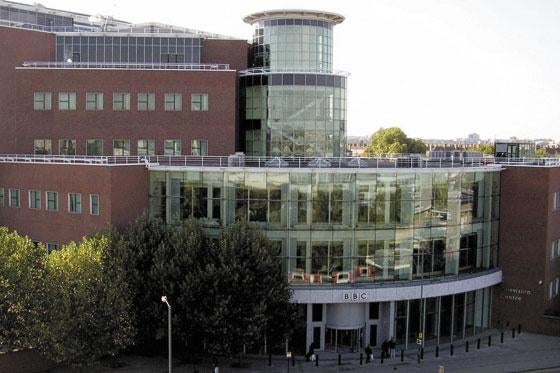
With thousands of BBC journalists set to go out on strike tomorrow – the National Union of Journalists is accusing the corporation of avoiding talks to head off the 24-hour walkout.
In a vote last week 72 per cent of NUJ members at the BBC voted to strike and 87 per cent voted for industrial action short of a strike – but BBC News director Helen Boaden later hit back claiming the turnout was less than 40 per cent and that only 1248 members of the NUJ – or 6 per cent of the BBC workforce – voted to take action.
Budget cuts mean the corporation is looking to axe 387 editorial jobs across BBC News, but the lack of staff coming forward for voluntary redundancy meant it was ‘impossible’to avoid compulsory redundancies, according to Boaden.
Hours before the strike was due to begin NUJ general secretary Michelle Stanistreet accused the BBC of showing no interest in negotiating with the union, an allegation the BBC denied.
Stanistreet, who will join the picket line at BBC Television Centre at midnight tonight, claimed the union had tried to resolve the dispute through negotiation – agreeing to use the ACAS conciliation service – but found it ‘hard to avoid the conclusion that BBC management wants thousands of its journalists to go on strike tomorrow, rather than settle the dispute”.
She also claimed that it had offered to meet the BBC next week but management had refused. ‘We also offered to meet with the BBC at ACAS today,’said Stanistreet. ‘Management has refused.’
‘By the deliberate BBC decision to provoke this strike action, journalists will lose a day’s pay and audiences will suffer for a dispute that is so easily avoidable,’she continued.
‘The BBC stance looks stubborn and provocative. It seems commonsense has been replaced by obstinacy.’
The BBC, meanwhile, said it was disappointed with the NUJ strike and admitted news services could be disrupted.
‘Industrial action will not alter the fact that the BBC is faced with a number of potential compulsory redundancies, following significant cuts to the central Government grants that support the World Service and BBC Monitoring,’said a spokesperson.
‘We will continue with our efforts to reduce the need for compulsory redundancies, however, the number of posts that we are having to close means that unfortunately it is likely to be impossible for us to avoid some compulsory redundancies.”
The NUJ said it had given the BBC five ways to avoid a strike:
• Extend the leaving dates of those immediately at risk to allow for further talks
• Agree to release volunteers
• Cut the red tape when it comes to redeployment and make it happen
• Use vacant posts to offset the costs of employing those at risk
• Apply fairness across the BBC and treat people the same – wherever they work.
The majority of cuts are in the the World Service and BBC Monitoring.
Last week Boaden said she expects only 66 per cent of World Service staff whose posts are closing to take voluntary redundancy or be redeployed, and 33 per cent per cent of staff in BBC Monitoring.
The cuts are the result of the BBC’s licence fee settlement in October which saw its budget slashed by £340m – or 16 per cent in real terms – and it take over Foreign Office funding of the World Service.
Email pged@pressgazette.co.uk to point out mistakes, provide story tips or send in a letter for publication on our "Letters Page" blog
